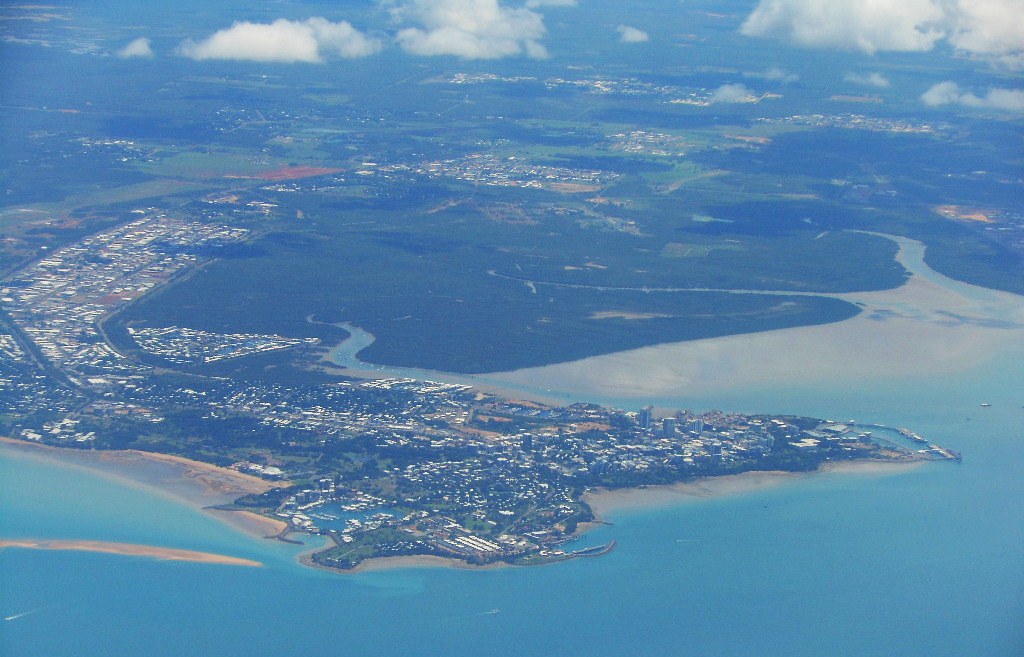Neil James
Most public discussion and media commentary—and seemingly all the political and bureaucratic dissembling—about the 99-year lease of Darwin’s commercial port continues to miss the point.
This isn’t primarily a commercial, foreign investment review or other economic issue.
Nor does it really concern potential barriers to defence force use of commercial facilities, an increased risk of foreign espionage or sabotage, or whether the Chinese company, Landbridge, has Communist Party or military connections or not.
Those latter issues are all largely manageable, although some will be difficult diplomatically and operationally.
Neither is the lease, strictly speaking, an alliance issue although the bungling about keeping the US informed is inexcusable—and highlights both the failure to think grand-strategically and consequent machinery-of-government failures as discussed below.
Given the long timeframe involved—and that the lease involves a powerful, regional and authoritarian country apparently seeking major changes to the rules-based international system—I see five key issues at stake.
There has been an utter failure to examine the matter in a mature, holistic and grand-strategic context that draws together all the Australian (and allied) sovereign-freedom-of-action implications over the next century.
A period nearly half as long again as modern Australian history since 1788 and one where strategic pressures will be fluid and perhaps turbulent.
For the first time since 1788 our major trading partner isn’t also a major ally. That poses obvious challenges in balancing national interests.
But what cannot be ignored or downplayed is that Australia’s strategic risk is particularly increased in the case of China compared to other foreign powers or sources of investment.
China has emerged as a potential and perhaps evident peer-strategic competitor to our long-time alliance partner.
More broadly, under its current undemocratic political system, it’s also ambivalent at best about supporting the rules-based international system by which Australia has thrived, especially since 1945.
Moreover, China’s current authoritarian rule poses increased risks of strategic adventurism and precludes the strategic stability safeguards of both domestic and international accountability through peacefully-negotiated agreements. Future Chinese governments could seek to divert democratic pressures domestically by resorting to belligerent nationalism.
If China was a democracy, and didn’t seek to disrupt the rules-based international system, such a 99-year lease of multi-purpose infrastructure wouldn’t raise the same strategic security consequences.
In geostrategic terms, Darwin Harbour and its city provide the only location suitable for major naval use across northern Australia, should this be necessary.
To deny or downplay that such increased use may become necessary over the next 100 years is to deny both history and any inter-generational responsibility for the security of our descendants.
Over the next 99 years, we should always avoid the strategic risk of any real or perceived overall dispute with China result in any form of claimed casus belli by China, particularly under its current form of government.
The best and easiest way to preclude such risks is to avoid them in the first place by not selling or leasing major strategic assets to such foreign interests.
By not leasing the port to Chinese interests we also preclude the risk of China deeming any future change to the leasehold conditions in a way that increases strategic tensions at a time when we would most need to reduce them, or where such leasing matters might enable increased Chinese strategic coercion at such a juncture.
The situation again demonstrates that major reform of our national security decision-making machinery is needed.
Not least because a Northern Territory government, narrowly focused on short-term political expediency, made a decision that affects the future strategic security of the whole country over a century, clearly without realising the long-term, detailed and broad implications. That said, they aren’t alone here as the few federal departments and agencies consulted only looked at the lease in specific and narrow silos, not holistically or in any broader strategic context.
A proper grand-strategic approach, rather than one focused on managing issues more in a day-to-day ‘strategic policy’ manner, is clearly needed to prevent further mistakes about foreign control of key national infrastructure and to improve the context and quality of public debate about such issues.
Until 1958 Australia maintained a Commonwealth war book covering federal and state responsibilities for coordinated and detailed action to forestall strategic security contingencies or manage them if they occurred.
Up to the mid-1980s, ASIO put serious effort into its designated responsibility to maintain the nation’s vital assets register covering those key parts of our national infrastructure essential to Australia’s security in the broadest sense. Both mechanisms should be modernised and reinvigorated.
If the NT Government and various federal agencies had been required to check such a register, and then consult in detail accordingly, the current dilemma over Chinese investment in Darwin’s port wouldn’t have arisen.
Finally, while the National Security Committee of Cabinet (NSC) now generally functions well, the supporting mechanisms remain inadequate in focus, co-ordination and whole-of-government composition.
The port of Darwin lease also proves that the Secretaries Committee on National Security (SCONS) is unable to provide the whole-of-government and broader strategic coordination that was generally achieved by the former inter-departmental defence committee and its supporting mechanisms—at least until the early 1970s.
As the Australia Defence Association has long argued, the NSC should be supported by a National Security Council comprising whole-of-nation participation by all relevant governmental agencies (with the states and territories represented as required), but with all the Council’s staff being seconded to avoid empire building and to reinforce its co-ordination and consultation role.
This would also allow a reconstitution of the strategic-level intelligence staff function not really undertaken by an Office of National Assessments focused only on intelligence analysis, and the futures-planning function within the Department of Foreign Affairs and Trade.
Neil James is executive director of the Australia Defence Association. Image courtesy of Flickr user Michael Coghlan.
This article first appeared on the ASPI "The Strategist" Blog and is reposted here under a Creative Commons license.

